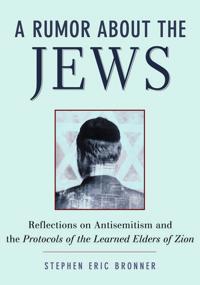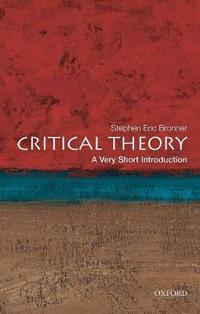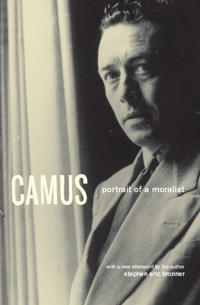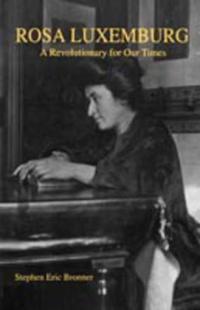A Rumor about the Jews: Antisemitism, Conspiracy, and the Protocols of Zion (Häftad)
avStephen Eric Bronner
ISBN: 9780195169560 - UTGIVEN: 200311In its portrayal of Judaism as a worldwide conspiracy dedicated to the destruction of Christian civilization, the Protocols of the Learned Elders of Zion remains one of the most infamous documents ever written. Despite being proven a crude forgery, the pamphlet managed to pervade twentieth-century t[...]
Critical Theory (Häftad)
avStephen Eric Bronner
ISBN: 9780199730070 - UTGIVEN: 201105In its essence, Critical Theory is Western Marxist thought with the emphasis moved from the liberation of the working class to broader issues of individual agency. Critical Theory emerged in the 1920s from the work of the Frankfurt School, the circle of German-Jewish academics who sought to diagnose[...]
Camus (Häftad)
avStephen Eric Bronner
ISBN: 9780226075679 - UTGIVEN: 200909Decades after his death, Albert Camus (1913-60) is still regarded as one of the most influential and fascinating intellectuals of the twentieth century. This biography by Stephen Eric Bronner explores the connections between his literary work, his philosophical writings, and his politics. Camus illu[...]
Reclaiming the Enlightenment: Toward a Politics of Radical Engagement (Inbunden)
avStephen Eric Bronner
ISBN: 9780231126083 - UTGIVEN: 2004-08-11Reclaiming the Enlightenment: Toward a Politics of Radical Engagement (Pocket)
avStephen Eric Bronner
ISBN: 9780231126090 - UTGIVEN: 2006-04-18Socialism Unbound: Principles, Practices, and Prospects (Övrig)
avStephen Eric Bronner
ISBN: 9780231153829 - UTGIVEN: 2011-11-15Published more than twenty years ago, Stephen Eric Bronner's bold defense of socialism remains a seminal text for our time. Treating socialism as an ethic, reinterpreting its core categories, and critically confronting its early foundations, Bronner's work offers a reinvigorated "class ideal" and a [...]
Socialism Unbound (Pocket)
avStephen Eric Bronner
ISBN: 9780231153836 - UTGIVEN: 2011-11-15Originally published: Boulder, Colo.: Westview Press, c2001.
Modernism at the Barricades: Aesthetics, Politics, Utopia (Övrig)
avStephen Eric Bronner
ISBN: 9780231158220 - UTGIVEN: 2012-08-07Stephen Eric Bronner revisits the modernist project's groundbreaking innovations, itsexperimental imagination, and its utopian politics. Reading the artistic and intellectual achievements of the movement's leading figures against larger social, political, and cultural trends, he follows the rise of [...]
Rosa Luxemburg (Häftad)
avStephen Eric Bronner
ISBN: 9780271025056 - UTGIVEN: 199701Rosa Luxemburg (1871-1919) was Polish, Jewish, and a woman in an international socialist movement dominated by Germans, gentiles, and men. For Luxemburg, there was no real socialism without democracy and no real democracy without socialism. In this biography Stephen Eric Bronner establishes Luxembur[...]










